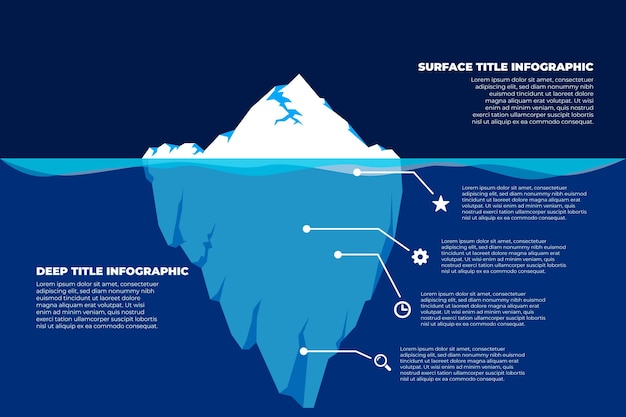Interesting Facts about the Arctic Ocean

The Arctic Ocean is the smallest and shallowest ocean on Earth.
The Arctic Ocean is located in the Northern Hemisphere, surrounding the North Pole.
The Arctic Ocean covers an area of about 14 million square kilometers.
The average depth of the Arctic Ocean is about 1,038 meters.
The Arctic Ocean is mostly covered by ice throughout the year, forming a vast ice sheet known as the Arctic ice pack.
The Arctic Ocean is home to numerous icebergs, which are large chunks of ice that break off from glaciers.
The Arctic Ocean is extremely cold, with temperatures often dropping below -30 degrees Celsius.
The Arctic Ocean is inhabited by various species of marine mammals, including polar bears, walruses, and seals.
The Arctic Ocean is also home to several species of fish, such as Arctic cod and Greenland halibut.
The Arctic Ocean has a unique ecosystem, with a diverse range of plants and algae adapted to the cold and harsh conditions.
The Arctic Ocean experiences long periods of darkness during the winter months, known as the Polar Night.
The Arctic Ocean experiences constant daylight during the summer months, known as the Midnight Sun.
The Arctic Ocean plays a vital role in regulating global climate, as it acts as a heat sink for the planet.
The Arctic Ocean has been undergoing rapid climate change due to global warming, resulting in the melting of sea ice.
The Arctic Ocean is rich in natural resources, including oil, gas, and minerals, which are becoming increasingly accessible due to melting ice.
Interesting Facts about the Arctic Ocean part 2
The Arctic Ocean is an important shipping route, known as the Northwest Passage, connecting the Atlantic and Pacific Oceans.
The Arctic Ocean is a popular destination for scientific research, with numerous expeditions conducted to study its unique environment.
The Arctic Ocean is also a source of inspiration for artists and photographers, capturing its beauty and fragility.
The Arctic Ocean is a symbol of wilderness and untouched nature, reminding us of the need to protect our planet.
The Arctic Ocean is an important habitat for migratory birds, providing nesting grounds and feeding stations along their journey.
The Arctic Ocean is a challenging environment for humans, requiring specialized equipment and skills to survive.
The Arctic Ocean has witnessed the effects of climate change firsthand, with shrinking ice caps and disappearing species.
The Arctic Ocean is a fascinating landscape of icebergs, glaciers, and frozen tundra, creating a breathtaking sight.
The Arctic Ocean is a place of extremes, with freezing temperatures in winter and an explosion of life in the summer.
The Arctic Ocean has a unique biodiversity, with species adapted to survive in the cold and ice-covered waters.
The Arctic Ocean is a treasure trove of scientific discoveries, uncovering the secrets of our planet’s history and evolution.
The Arctic Ocean is an important part of indigenous cultures, providing food, transportation, and spiritual significance.
The Arctic Ocean is a fragile ecosystem, vulnerable to pollution and human activities.
The Arctic Ocean holds vast potential for renewable energy sources, such as wind and tidal power.
The Arctic Ocean is a pristine environment, untouched by industrialization and urbanization.
The Arctic Ocean is home to the longest migration of any mammal, with bowhead whales traveling thousands of kilometers each year.
The Arctic Ocean is a place of solitude and tranquility, where one can escape from the noise and chaos of modern life.
The Arctic Ocean is a living laboratory, allowing scientists to study the effects of climate change and the adaptation of species.
The Arctic Ocean is a frontier for exploration, with uncharted territories waiting to be discovered.
The Arctic Ocean is a source of inspiration for poets, writers, and musicians, evoking a sense of awe and wonder.
The Arctic Ocean is a unique ecosystem, where sunlight penetrates through the ice, creating a magical underwater world.
The Arctic Ocean is a vital part of the global climate system, regulating ocean currents and weather patterns.
The Arctic Ocean is a playground for extreme sports enthusiasts, offering opportunities for ice diving, snowboarding, and ice climbing.
The Arctic Ocean is a reminder of the beauty and fragility of our planet, urging us to take action to preserve it for future generations.
The Arctic Ocean is a place of mystery and exploration, with unexplored depths and hidden treasures.
The Arctic Ocean is a living testament to the power of nature, constantly changing and adapting to its surroundings.
The Arctic Ocean is a natural laboratory for studying climate change, providing vital data for scientists and policymakers.
The Arctic Ocean is a symbol of global cooperation and diplomacy, with countries working together to protect its fragile ecosystem.
The Arctic Ocean is a harsh and unforgiving environment, testing the limits of human endurance and resilience.
The Arctic Ocean is a window into the past, preserving ancient fossils and evidence of our planet’s history.